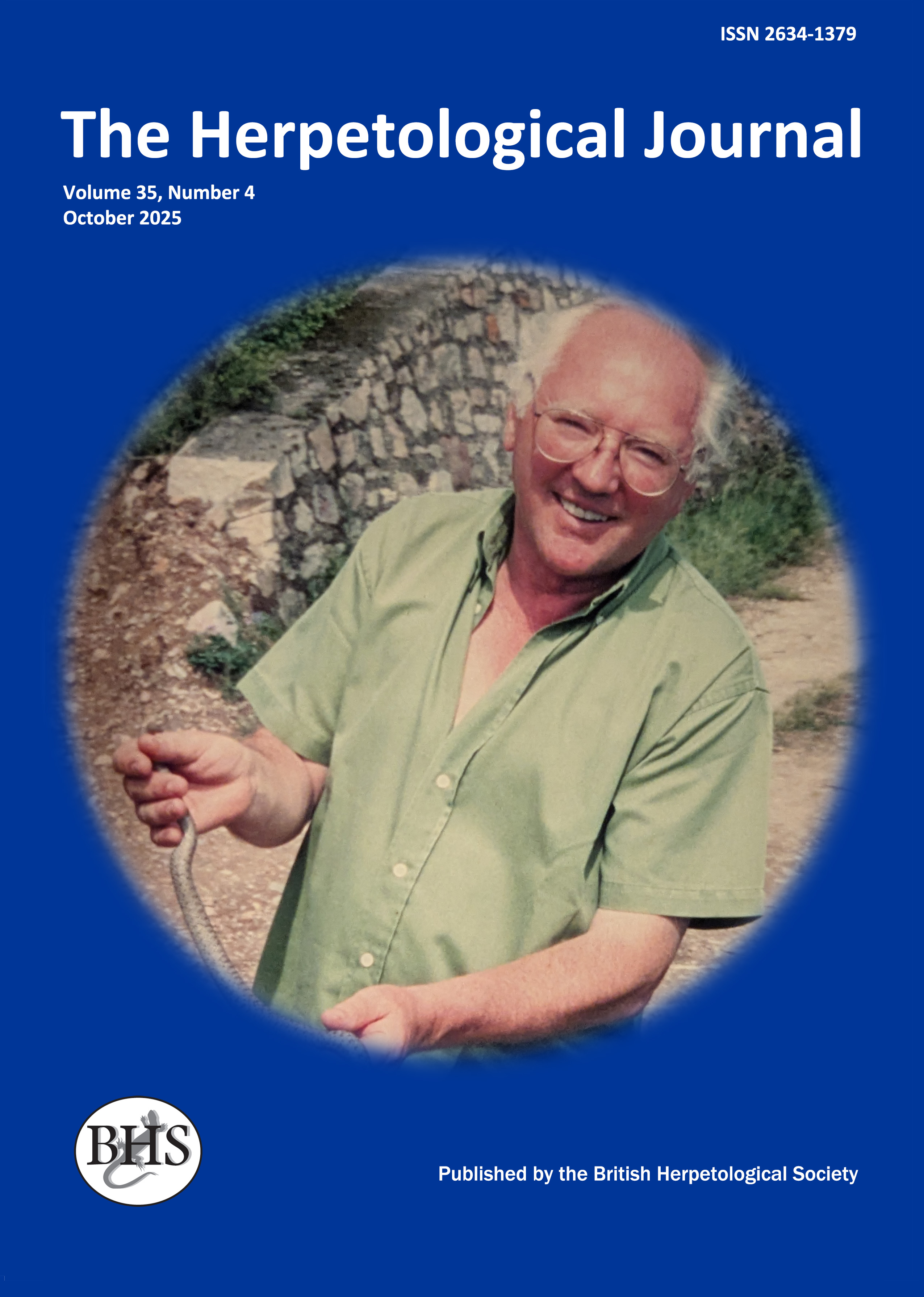
The Herpetological Journal
The Herpetological Journal is the Society's prestigious quarterly scientific journal. Articles are listed in Biological Abstracts, Current Awareness in Biological Sciences,Current Contents, Science Citation Index, and Zoological Record.
ISSN 0268-0130
2023 Impact Factor for the Herpetological Journal is 1.1, with the Journal sitting just below Quartile 2 in Zoology, at percentile 46.9
pdf 06. Egg mortality and early embryo hatching caused by fungal infection of Iberian rock lizard (Lacerta monticola) clutches
1869 downloads
Open Access
pp. 265-272
Authors: Moreira, Pedro Lopes & Barata, Margarida
Abstract: Infertile and non-viable fertile eggs within a reptile clutch may decrease the incubation success of the remaining eggs, as (1) opportunistic pathogens may use the nutrient resources provided by dead eggs to colonize the clutch and spread to and kill viable eggs; and (2) odours released by spoilt eggs may attract predators to the clutch. These hypotheses were tested on the Iberian rock lizard (Lacerta monticola) by comparing the incubation success of fertile eggs between clutches composed solely of fertile eggs and clutches containing a small number of dead eggs. In a laboratory experiment, fungi (Fusarium sp. and Gliocladium sp.) colonized both infertile eggs and fertile eggs that died during incubation and thereafter spread to and killed adjacent eggs. In addition, offspring hatched earlier from fungal infected eggs than from non-infected eggs. The former were smaller and lighter than the latter, as they hatched before using the full egg yolk content. Results from a field experiment did not corroborate the fungal pathogenic effects observed in the laboratory nor did they confirm that clutches containing dead eggs suffer higher predation. Despite the inconclusive results regarding the role of fungal pathogens in nature, the present study indicates that this subject deserves further investigation in reptiles.
Keywords: EARLY HATCHING, EGG INFERTILITY, FUNGAL PATHOGEN, EGG VIABILITY

